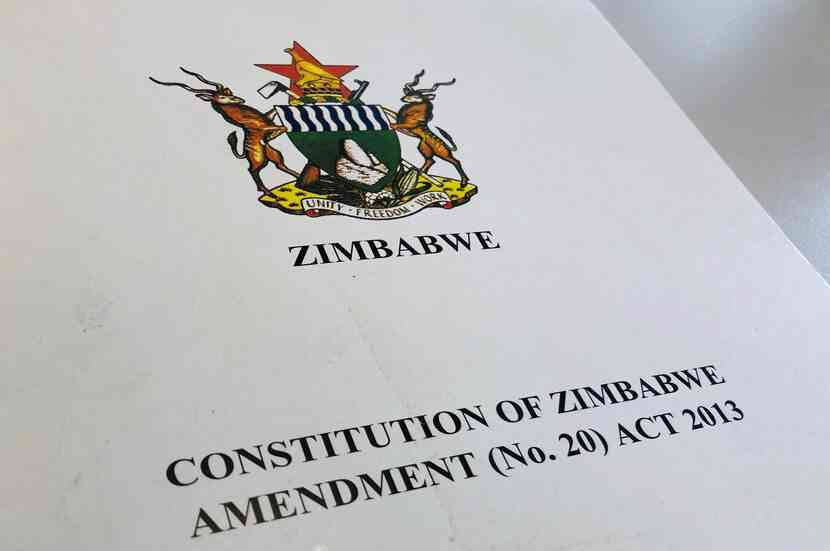
In the past three years, artificial intelligence (AI) has moved from being a distant curiosity to a daily reality. Globally, the pace of change has been dizzying.
What was once the preserve of early adopters, tech enthusiasts tinkering with chatbots and image generators, has now become mainstream. Every week, new platforms emerge, new applications are normalised, and new risks are revealed.
The question that confronts us, in Harare as much as in Silicon Valley, is simple yet profound: can Zimbabwe keep up with AI?
This is not a rhetorical flourish. It is a genuine dilemma. The acceleration of AI-led change is not only technological; it is social, cultural, and institutional. We are witnessing a shock wave that touches relationships, workplaces, classrooms, and even the intimate spaces of our homes.
Zimbabwe, like the rest of the world, is caught in this storm. The difference is that our institutions, already stretched by economic fragility and political contestation, may be less prepared to absorb the impact.
One of the most startling examples of this acceleration is the phenomenon of AI companionship.
Only a few years ago, the idea of forming a “relationship” with a chatbot seemed absurd. Today, millions across the globe treat AI systems not only as productivity tools but as friends, confidants, even partners. Tech giants have seized on this trend, marketing AI companions as solutions to loneliness and isolation.
Yet beneath the glossy marketing lies a darker reality. Cases have already emerged where AI companions have contributed to tragic outcomes, including suicides. The risks are not abstract; they are painfully real.
- Mavhunga puts DeMbare into Chibuku quarterfinals
- Bulls to charge into Zimbabwe gold stocks
- Ndiraya concerned as goals dry up
- Letters: How solar power is transforming African farms
Keep Reading
And while Zimbabwe may not yet have witnessed viral stories of citizens marrying digital personas, the cultural currents are flowing in our direction. Young people here are already experimenting with AI chatbots, often in private, away from the gaze of parents, teachers, or policymakers.
The danger is not only psychological. It is also cultural. Zimbabwean society has long prized communal bonds, family ties, and spiritual traditions. What happens when these are displaced by synthetic relationships with machines? What happens when intimacy, once grounded in human reciprocity, is outsourced to algorithms?
AI companionship is only one strand of a broader system. Across sectors, AI platforms are proliferating at breath-taking speed. In broadcasting, algorithms are already curating content, shaping editorial choices, and influencing public opinion.
In education, AI tutors promise personalised learning, but also threaten to erode the authority of teachers.
In agriculture, predictive analytics are touted as tools for climate resilience, yet they raise questions about data sovereignty and farmer autonomy.
Zimbabwe is not immune to this barrage. Our broadcasters are experimenting with AI-generated news scripts. Our universities are debating whether to integrate AI into curricula. Our entrepreneurs are exploring AI-driven fintech solutions. Each of these developments carries promise, but also peril. The challenge is not whether AI will arrive; it already has, but whether our institutions can adapt quickly enough to harness its benefits while mitigating its risks.
Capacity question
This brings us to the heart of the matter: capacity. Do we, as Zimbabweans, have the institutional, cultural, and ethical capacity to survive amidst this barrage of AI platforms?
Capacity is not only about technical skills. It is about governance, regulation, and public awareness. It is about whether our policymakers can craft frameworks that protect citizens without stifling innovation. It is about whether our educators can equip students with critical thinking skills to navigate AI-driven environments. It is about whether our communities can sustain human bonds in the face of synthetic alternatives.
At present, the signs are mixed. On the one hand, Zimbabwe boasts a vibrant intellectual community, with scholars, journalists, and activists already raising alarm about AI’s risks.
On the other hand, our regulatory frameworks remain underdeveloped, and our public discourse is often reactive rather than proactive. Too often, we import technologies without interrogating their social consequences. Too often, we celebrate novelty without asking whether it serves the public interest.
If society is to keep up with AI, we must adopt a dialogical approach. This means engaging in conversations across sectors, generations, and communities. It means refusing to treat AI as a purely technical matter, and instead recognising it as a profoundly social phenomenon.
In Zimbabwe, this dialogical approach could take several forms. Broadcasters, for instance, could convene public forums on the role of AI in shaping news and culture.
Universities could integrate AI ethics into curricula, ensuring students learn not only how to use AI tools, but question them.
Civil society organisations could facilitate community dialogues, helping citizens articulate their hopes and fears about AI. Such dialogues must be inclusive. They must involve not only technocrats and policymakers, but also ordinary citizens, farmers, teachers, artists, and elders. AI is not merely about machines; it is about people. It is about how we live, love, work and dream.
Zimbabwean context
Context matters. In Europe and North America, debates about AI often centre on privacy, corporate power, or geopolitical competition. In Zimbabwe, the stakes are different. Here, AI intersects with longstanding struggles over sovereignty, development, and cultural identity. Consider broadcasting.
For decades, Zimbabwean media have wrestled with questions of independence, bias, and public trust. The arrival of AI threatens to complicate these struggles. Algorithms may amplify certain voices while silencing others. They may prioritise sensationalism over substance. They may entrench biases in ways that are harder to detect. Unless carefully managed, AI could erode rather than enhance editorial independence.
Or consider education. Zimbabwean schools already face resource constraints, overcrowded classrooms, and uneven access to technology. AI tutors may promise personalised learning, but who will ensure rural students are not left behind? Who will guarantee AI systems reflect local languages, histories, and values rather than foreign templates?
These are not hypothetical questions. They are urgent dilemmas. And they demand Zimbabwean answers, rooted in our own context, culture, and aspirations.
The pace of AI-led change is unlikely to slow. If anything, it will accelerate. The question is not whether Zimbabwe can stop the tide; it cannot. The question is whether we can learn to swim. To do so, we must embrace dialogue.
We must recognise that AI is not only about machines, but about people. We must insist technology serves society, not the other way round. We must build capacity, craft strategies, and sustain human bonds. Only then can we hope to survive amidst the barrage of AI platforms. Only then can we ensure Zimbabwean society keeps up with AI, not by surrendering to it, but by shaping it in our own image, for our own future.
- Sagomba is a chartered marketer, policy researcher, AI governance and policy consultant, ethics of war and peace research consultant. — [email protected]; LinkedIn: @Dr. Evans Sagomba; X: @esagomba.











